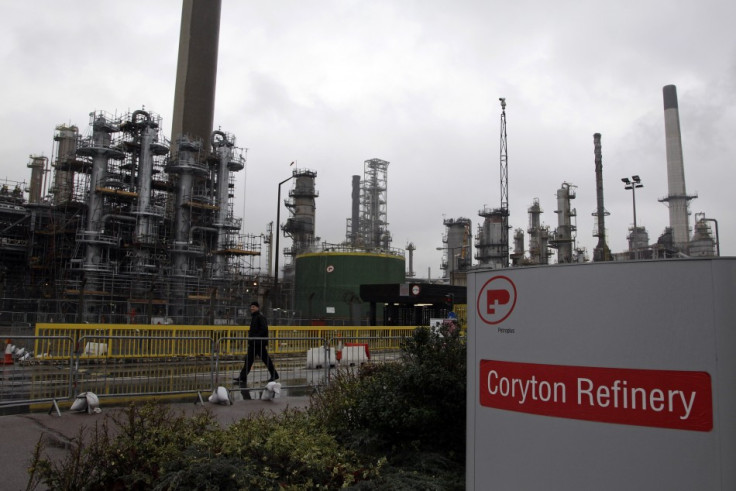Coryton Fuel Deliveries 'Blocked by Taxman'

Fuel deliveries at the troubled Coryton refinery in Essex have been held up by the taxman, according to an oil industry insider.
With deliveries from the site on hold putting a strain on petrol supplies in the Southeast, an oil industry source speculated that Revenue and Customs (HMRC) might have been demanding fuel duty upfront on the deliveries because of the financial problems of Petrolplus, the company that owns Coryton.
The company has gone bankrupt.
There is an agreement between oil companies and HMRC that fuel duty payment is deferred for up to 20 days, rather than being paid immediately.
A spokeswoman for PricewaterhouseCoopers, Coryton refinery's administrators, said there was no tax issue with HMRC, despite the rumours.
She said the refinery process was continuing at the site and fuel was being stored there while delivery arrangements were negotiated with Coryton's customers.
"We cannot comment on an individual company's tax affairs due to confidentiality," a spokesman for HMRC said.
"HMRC's responsibility in such cases is to protect the ongoing duty revenue position.
"However, HMRC is working very closely with the industry and other government departments to facilitate fuel supplies."
Coryton supplies 20 percent of the Southeast's fuel. About 900 UK jobs are at risk because of the bankruptcy unless a buyer steps in for the Coryton refinery.
"I don't want to be alarmist about this but I don't want to be dishonest either. Supplies across London and the Southeast could be affected and I have been told this could [have an] impact on the Olympics," East of England MEP Richard Howitt told the BBC.
Government oil minister Charles Hendry told the Daily Telegraph that motorists should "carry on their lives as normal".
"There is the capacity in some of the other refineries in the UK," he said.
"Companies like BP and Shell, who are the main buyers of the output from Coryton, have already made short-term arrangements to make sure that they get the fuel from other sources.
"We have spare import capacity so we can bring extra fuel in as necessary."
© Copyright IBTimes 2024. All rights reserved.






